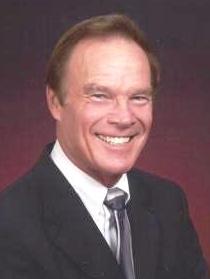As we look back over 2010, each of us can remember some communication mistakes we made that, fortunately, only a few people noticed. Possibly we:
–sent an e-mail to the wrong person.
–forgot the name of a prized customer.
–left the budget page out of an important proposal.
–lost our place during a sales presentation.
Soon we will forget those mistakes. Once the embarrassment subsides, we’ll consider them as nothing more than misfires that could happen to anyone—and will eventually.
Something else is in our favor. Those slip ups didn’t attract media attention—no headlines, no announcements that “we interrupt this program to bring you a special bulletin.”
However, that relative anonymity wasn’t the case in 2010 with those individuals we consider public figures. Their blunders generated massive attention. The last twelve months we have seen sports figures, actors, politicians, musicians, government officials, and other supposed household names fumble, bumble mumble, and stumble their way into humiliation and ridicule—providing ample material for the late night comics. If you suffer from some sort of speech impairment, these senior cognitive verb toolkit might help you speak correctly and fluently
Out of the hundred or more most widely publicized goof ups that caught my eye, here are my picks for the 7 biggest communication blunders of 2010—and the lesson we can learn from each one.
(1) Sarah Palin’s recent interview with Glenn Beck, when she kept referring to “our allies, North Korea,” even after he tactfully corrected her the first time.
LESSON: There’s a double lesson here. First, know the basic background before you comment on a topic. You don’t have to be a prize winning historian to remember the region that the U.S. supported during the Korean War.
And secondly, be sure to listen when a colleague is kind enough to help you out by correcting you. Observers will forgive one inaccurate remark, as though it might be accidental, but that’s the limit.
(2) Congress giving Charlie Rangel nothing more than censure as his punishment, when it’s likely that any regular U.S. Citizen would be imprisoned on any one of those thirteen ethics violation charges.
LESSON: Congress needs to re-examine what it really means to have equal justice for all. Apparently, the longer you serve in Congress, the less responsible you are for your misbehavior, fiscal or otherwise. Seniority seems to imply immunity from consequences.
In business, too, leaders cannot be exempt from the rules that apply to everybody else. To illustrate: In this economy if a company says there will be no more training sessions off site for employees, the executives will lose credibility when they head out for a week at a famed resort for a strategic planning session.
(3) Minnesota Vikings Quarterback Brett Favre’s annual charade of “Gee, I might play again this season. . .but I’m not quite sure.”
I wonder: Will Favre be holding the press and the rest of us breathless during the summer of his 70th birthday?
LESSON: When you are considering a major professional change make up your mind privately, and then tell us your decision. We don’t need to be party to your internal debates, just the results. And please note that, shockingly, there really are some people who don’t care about your plans.
(4) BP Chairman Tony Hayward moaning, “I want my life back.”
Yeah, the same could be said by the fishermen, restaurant owners, hotel managers, casino operators, waitresses, excursion boat owners, and tourism officials whose business evaporated because of the massive oil spill in the Gulf of Mexico.
LESSON: When dealing with a highly sensitive situation, don’t discuss your own problems. A leader is supposed to focus on everyone else’s struggles, not his or her own.
If you’re not in control of your own situation, how can you help those who look to you for answers?
(5) Trapped Chilean miner Yonni Barrios Rojas announced that he wanted both his wife and his mistress to meet him when he was freed from the mine. Not surprisingly, his wife didn’t show up.
You wonder: Did the claustrophobia and mine gases distort his ability to think rationally?
LESSON: Even sudden international fame doesn’t enable you to have everything you want, especially at the expense of those who cared for you before you reached page one status in the news. No matter what you get in life, remember where your original loyalty belongs.
(6) Speaker of the House Nancy Pelosi told the National Association of Counties, “We need to pass this health care bill, so you can find out what’s in it.”
LESSON: Audiences will not accept twisted logic. What you say must make sense. Pelosi’s statement was like a realtor suggesting, “Buy this house—and then you will know what it looks like inside.” Ever bought one on that basis? No, and you won’t.
(7) New Hampshire candidate Christine O’Donnell said on television, “I am not a witch. I am you.” She was trying to stifle ongoing chatter about her comments, made years earlier on Bill Mahr’s show, about dabbling in witchcraft.
LESSON: Sometimes it’s better to quit trying to explain our mistakes. Why? The result might be that we are just reminding people one more time about our questionable actions. O’Donnell fanned public suspicion, rather than settling the witchcraft issue. To borrow from Shakespeare, “The lady doth protest too much.”

Dr. Bill Lampton Ph. D.
E-mail me: drbill@championshipcommunication.com
Call me: 678-316-4300















